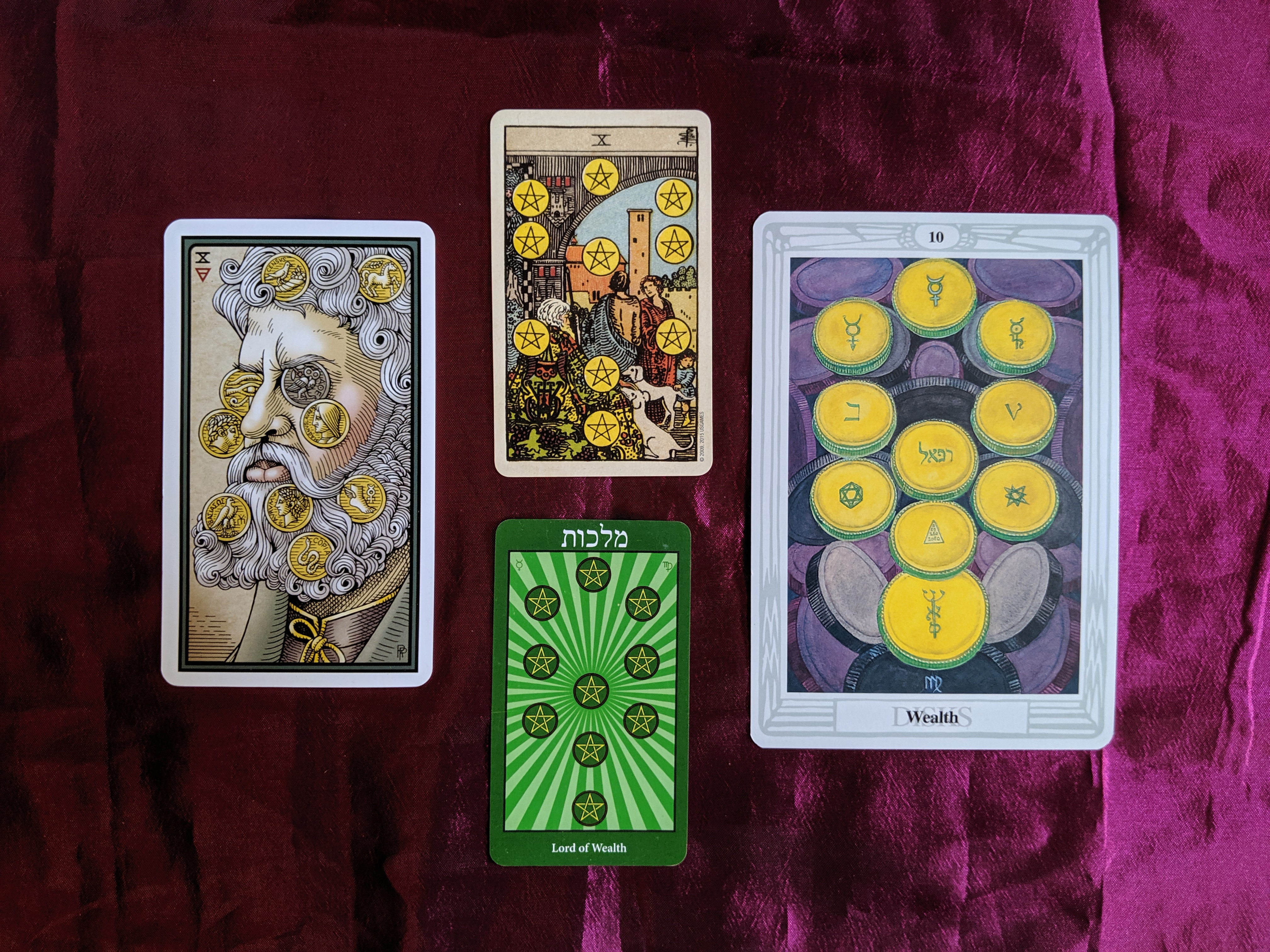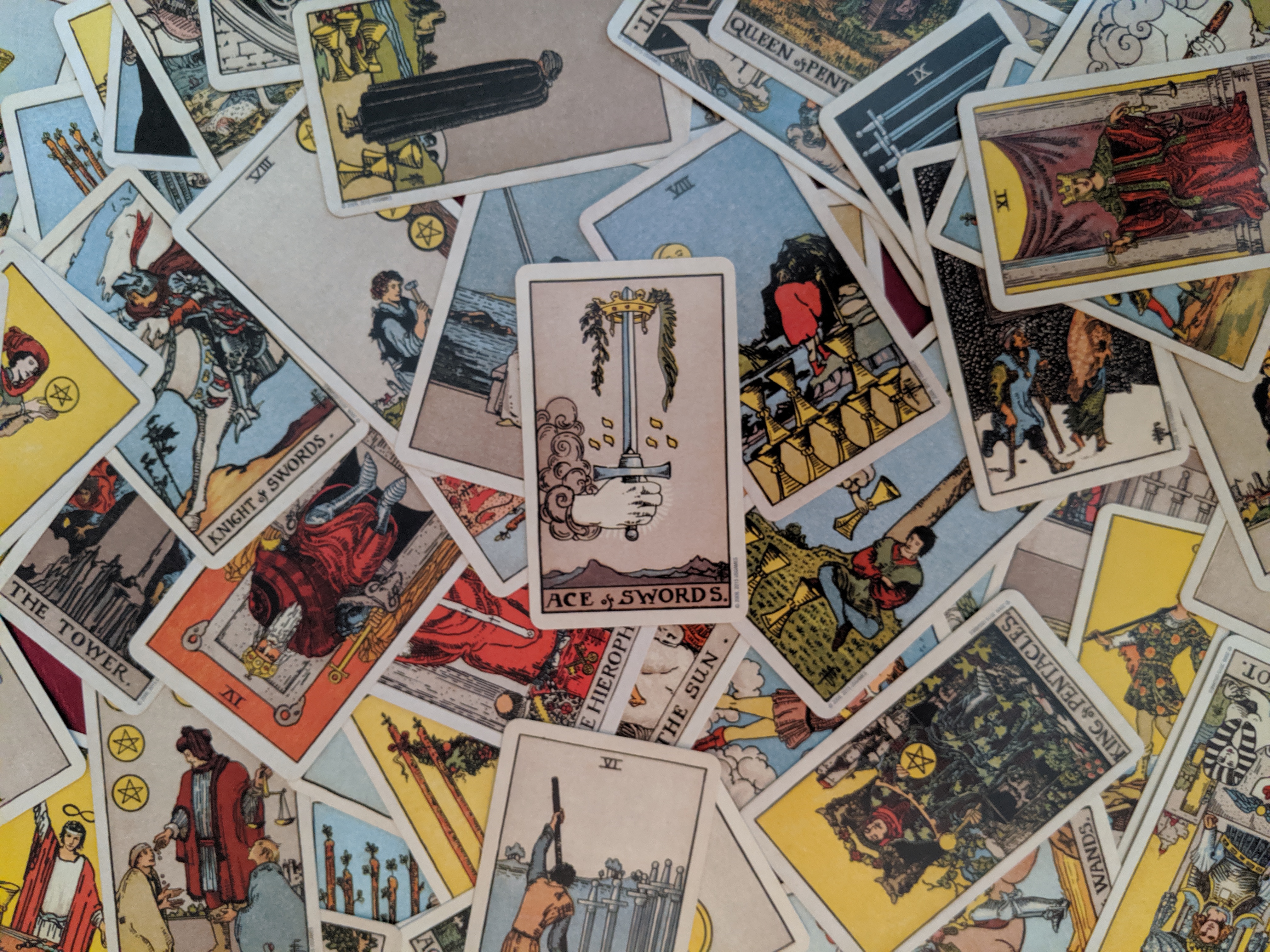Everyone’s familiar with the trope of the mysterious old gypsy who offers to tell your fortune with tarot cards or tea leaves but the issue itself is, in reality, something surprisingly more complicated and controversial.
Whether your thoughts are influenced by the twenty-some bible verses condemning the practice, you’re afraid of altering your path by knowing the future prematurely, or if it just gives you the heebie-jeebies, it’s likely you are already either completely for, or against, divination.
That isn’t the interesting part.
The endlessly fascinating aspect of this topic is not the stance an individual takes, but why they have taken that stance.
If the reason is religious, then that would suggest that the belief the individual holds is that card reading or palmistry in general does, in fact, work. However, these ancient manuscripts written by unknown authors say that God doesn’t like it, and so it is bad.
If the reason is for fear of altering the future, that would suggest that the individual has a resting belief in fate of some kind. What harm is there in altering the future, unless you are already on the exact right course by some divine hand? If there isn’t some perfect fate, then it’s an unknown either way and impossible to determine benefit or detriment.
Related Articles
- Reverend Janglebones’ Soapbox: Bellwether Nails It
- Reverend Janglebones’ Tartan Spotlight: Professor Michael Coyan

If the reason is as pure as “It freaks me out!” then I empathize and applaud your honesty. It’s also the only reason out of the three that is based upon very real personal feelings without deferring authority to hypotheticals or unknowns.
If you don’t mind, I’d like to explore that third reason a little more.
Now, let’s pretend for a second that all of the apprehension and fear is completely unfounded. Let’s say for a second that we know for sure that the cards in a tarot reading are entirely random. For the sake of our thought experiment, this is a fact.
No divine hand.
That no matter what, there is nothing involved but random chance. Got that? Okay. Now, let’s say you have been feeling kind of vaguely down and don’t know why. Let’s say you do a reading anyway.
You shuffle and you draw one card: The ten of disks.
You see the title of this card is “wealth” and you immediately begin to congratulate yourself (even though you don’t believe in this stuff) and begin to list all the ways that you’re great within the privacy of your mind (hopefully) as you flip to the page in the little booklet about the ten of disks and begin to read.
The little book says that the ten of disks is about being fulfilled in, specifically, practical and tangible ways. This particular card, however, has a nagging undercurrent of lacking spirit. Or missing the heart. The idea of having all one could possibly need, but can’t escape or deny that something crucial is missing.
In some decks it’s called “greed” or “the materialist” and as you read the description you feel attacked. As if someone violated your privacy when, in fact, you have just been offended by your own ability to identify your issue. If that card happened by chance alone, and you felt an emotional reaction from the meaning, then you just had a productive conversation with yourself. You just did, with just a silly pack of cards, what a therapist may have taken weeks to unearth.
You just had an honest-to-goodness personal revelatory experience.
Congratulations.
Now, being honest with ourselves is not easy and our fragile little egos aren’t always ready to see the reason for our malaise but, if this topic is examined closely it almost appears as though it is not, in fact, our possible futures that are giving us the willies.
If this is looked at closely, and honestly, it kind of looks like what we’re afraid of is not as much our possible futures, but our probable and difficult present.
Brian Yoder
Reporter


